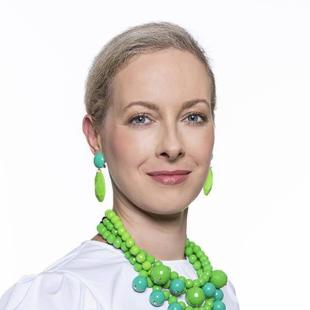
Key contacts
CMS NewsMonitor Arbeitsrecht | Episode 26
Published on 09 October 2023
In order to transpose the EU Work-Life Balance Directive (2019/1158), the Austrian National Council adopted changes in parental leave, part-time parental leave, and carers’ leave, among others, on 20 September 2023. The following is an overview of the changes that will take effect as of 1 November 2023.
Changes in the duration of parental leave
If parental leave is not shared between parents, it can now only be taken in the first 22 months after the child’s birth (Sec. 15 para. 1 Maternity Protection Act (Mutterschutzgesetz, MSchG), Sec. 2 para. 1 Paternity Leave Act (Väter-Karenz-Gesetz, VKG)). If parental leave is shared or the parent is a single parent, the duration of parental leave is two years (Sec. 15a MschG, Sec. 2 para. 1a VKG). The same applies if the other parent is not legally entitled to parental leave (Sec. 15 para. 3a MschG, Sec. 2 para. 5a VKG).
Provisions on postponed parental leave have also been amended accordingly: Postponed parental leave can only be taken if parental leave ends not later than 19 months after the child’s birth. If parental leave is shared (Sec. 15a MschG, Sec. 3 VKG), if the parent is a single parent (Sec. 15 para. 1a MschG, Sec. 2 para. 1a VKG) or if the other parent is not entitled to parental leave (Sec. 15 para. 3a MschG, Sec. 2 para. 5a VKG), parental leave must end no later than 21 months after the child’s birth, or – if the other parent is also taking postponed parental leave – no later than 18 months after the child’s birth.
These new provisions apply to children born on or after 1 November 2023.
Change in the duration of part-time parental leave
Part-time parental leave can be taken until the child’s eighth birthday for a maximum period of seven years. The actual period of prohibition of employment and the duration of part-time parental leave taken by both parents for the same child must be deducted from this maximum period. The period between the child’s seventh birthday and the child’s later entry into school must be added to this maximum period (Sec. 15h para. 1 MschG, Sec. 8 para. 1 VKG). The provisions on agreed part-time parental leave apply until the child’s eighth birthday (Sec. 15i MschG, Sec. 8a VKG).
These new provisions apply to parents who declare their intent to take parental leave on or after 1 November 2023.
Changes in carers’ leave
Carers’ leave can now be taken by persons providing necessary care to a close relative due to illness even if they do not live in the same household. Furthermore, it can now also be taken in order to provide care to persons living in the same household even if they are not close relatives.
Protection from dismissal for taking parental leave, part-time parental leave or carers’ leave
Workers who consider that they have been dismissed on the grounds that they have applied for, or have taken, parental leave, part-time parental leave or carers’ leave can challenge such dismissal (Sec. 15b para. 7 MschG). The prohibited grounds need only be credibly established, as Sec. 105 para. 5 of the Labour Relations Act (Arbeitsverfassungsgesetz, ArbVG) applies mutatis mutandis. Challenges are further facilitated by the fact that workers may request, within five days, that the employer provide duly substantiated reasons for their dismissal. Employers must provide such reasons in writing within five days. However, if reasons are not provided, this does not alter the legal effect of the dismissal (Sec. 15b para. 7 and Sec. 15n para 2 MschG, Sec. 4 para. 6a and Sec. 8a para. 2 VKG, Sec. 16 para. 5 Paid Leave Act (Urlaubsgesetz, UrlG)).
Suspension of preclusion and limitation periods
Preclusive deadlines and limitation periods as provided by law, collective bargaining agreements or contracts are suspended until two weeks after the end of parental leave. This also applies when taking the following leave entitlements: leave under Sec. 14a (end-of-life care), Sec. 14b (caring for critically ill children) and Sec. 14c (unpaid carers’ leave) of the Employment Contract Law Adaptation Act (Arbeitsvertragsrechts-Anpassungsgesetz, AVRAG); carers’ leave under Sec. 18a UrlG; leave of absence for reasons of illness or accident of a close relative under Sec. 8 para. 3 of the Employees Act (Angestelltengesetz, AngG) or Sec. 1154b para. 5 of the Austrian Civil Code (Allgemeines bürgerliches Gesetzbuch, ABGB).
Author: Mirjam Holuschka








